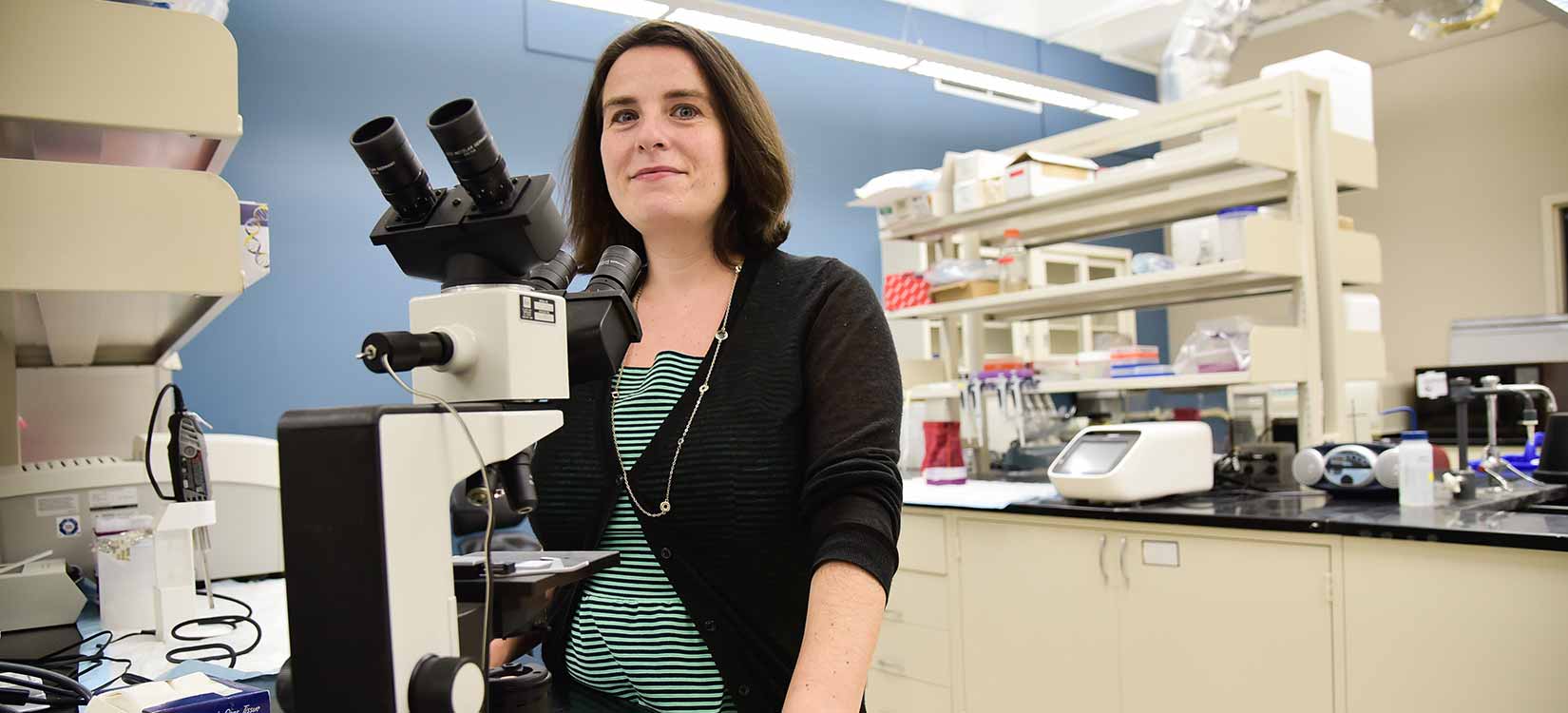Stress may affect gut microbiome and the transmission of mental illness
 "OSU has given me the opportunity to create my dream job as a clinician-researcher. The support and encouragement from Dr. Campo and department faculty, the collaborators and mentors I have, as well as OSU's unparalleled financial support – it's so valuable to the development of my research and to launching myself as an independent investigator." Tamar Gur, MD, PhD.
"OSU has given me the opportunity to create my dream job as a clinician-researcher. The support and encouragement from Dr. Campo and department faculty, the collaborators and mentors I have, as well as OSU's unparalleled financial support – it's so valuable to the development of my research and to launching myself as an independent investigator." Tamar Gur, MD, PhD.
Dr. Gur received her medical degree and doctorate from the University of Pennsylvania. Experiences during her clinical training shaped her research interest. "It was heartbreaking to see mothers with psychological distress and the toll it had on their children," says Dr. Gur. "I felt the best way to help the children was to provide the healthiest possible experience for their moms."
After joining Ohio State in 2013, Dr. Gur became fascinated with the relatively nascent but growing literature on the brain-gut connection and soon established a collaboration with national stress and microbiome expert Michael Bailey, PhD, at the Center for Microbial Pathogenesis at Nationwide Children’s Hospital Research Institute who she describes as a "wonderful mentor and collaborator."
Currently Dr. Gur examines the interplay between stress, gut microbiome and the transgenerational transmission of mental illness. Through her rodent model of prenatal stress, she has documented increased rate of preterm birth in stressed dams. Preterm birth is correlated with increased risk for developing mental health disorders. The March of Dimes Foundation is funding Dr. Gur's follow-up research into preterm birth, psychosocial stress and the microbiome. She also received a KL2 Career development award from the Ohio State Center for Clinical and Translational Science. "Getting this grant felt like a huge vote of confidence from the University, and is deeply appreciated," says Dr. Gur. Outside the university, she collaborates with UCLA researchers analyzing gut microbiome from infants with maternal history of mental disorder. While extensive research is needed, these studies could one day open new avenues for prenatal preventive care.
In addition to her research endeavors, Dr. Gur serves as an attending psychiatrist in the Women's Behavioral Health division of the Department of Psychiatry and Behavioral Health. Dr. Gur provides perinatal psychiatric care to women suffering from depression and anxiety. "By far the most rewarding part of my job is when they bring their happy, healthy babies to postpartum appointments," says Dr. Gur.

